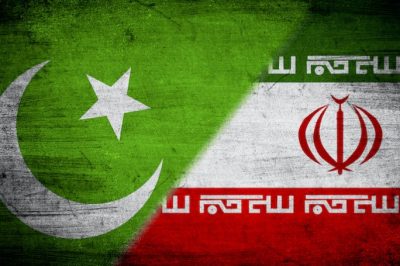In recent days, the Pakistan-Iran relationship has taken an unprecedented turn with both nations conducting strikes on each other’s territories, marking a significant escalation in hostilities. The border clashes, primarily centered around the restive Baloch region, highlight the complex dynamics between the two neighbors.
The core issue concerns the longstanding struggle against separatist movements operating along the 900-kilometer volatile border. Both Pakistan and Iran have faced the common enemy of militants in the Baloch region; it is highly unusual for each side to launch strikes on the other’s soil.
The recent exchange of attacks began when Iran claimed to target strongholds of the militant group Jaish al-Adl in Pakistan’s Balochistan province. Pakistan condemned the strikes, calling them a violation of international law.
Pakistan’s assertion of an unprovoked violation of its airspace by Iran, coupled with the tragic incident of two children’s deaths and three girls’ injuries during the Iranian strikes within Pakistani territory, has escalated tensions between the two neighboring countries.
Pakistan strongly denounces what it sees as a flagrant violation of its sovereignty, as evidenced by the recall of ambassadors, the suspension of high-level visits, and the furious demonstrations that followed.
Iran, on the other hand, justifies its actions as a response to the presence of Pakistani-origin terrorists, known as “Sarmachars,” operating from within its borders. The assertion of a common threat posed by terrorism in the region and the need for coordinated efforts against it has been a recurring theme in both Pakistani and Iranian statements.
In retaliation, Pakistan conducted precision military strikes on alleged separatist hideouts in Iran’s Sistan and Baluchestan province, resulting in casualties.
The “Marg Bar Sarmachar” operation conducted by Pakistan, ostensibly targeting terrorists in Iran’s Siestan-o-Balochistan province, has sparked a series of diplomatic and military responses with far-reaching implications.
The diplomatic dialogue between Pakistani Foreign Minister Jalil Abbas Jilani and Iran’s Hossein Amir Abdollahian demonstrates the intensity of the concern.
Pakistan condemns the violation of its sovereignty and warns of consequences, Iran maintains its commitment to respecting Pakistan’s territorial integrity. The emphasis on joint responsibility and collaboration against common enemies suggests a recognition of shared security concerns, despite the current discord.
The incident comes at a time when Iran is engaged in military actions beyond its borders, launching airstrikes in Iraq and Syria. The global response to these military strikes has been varied, with some nations condemning them as arbitrary acts violating international law, while others highlight the need to address maritime security risks in the region.
Also Read: Pakistan sends fourth Gaza relief batch, solidifies support
Before these confrontations, Iran and India held bilateral discussions on a range of regional and international issues during the visit of Indian Foreign Minister Dr. S. Jaishankar to Iran. The significance of these talks, including discussions on the Chabahar Port and the International North-South Transport Corridor, adds another layer of complexity to the evolving geopolitical dynamics.
Both countries involved must prioritize diplomatic routes for resolution as the situation develops. The interconnection of regional security, economic interests, and the battle against terrorism stresses the significance of measured responses and dialogue.
Pakistan and Iran must establish common ground, address justifiable concerns, and advance regional stability while sailing challenging diplomatic seas.
The consequences of escalating tensions could extend far beyond the immediate bilateral relationship, impacting the broader geopolitical landscape of South Asia and the Middle East. Diplomacy, cooperation, and a commitment to shared security are paramount in these uncertain times.
International Relations Scholar interested in National Security strategies, with a good focus on Geo-Politics, Foreign Policy, and Public & Cultural Diplomacy.







